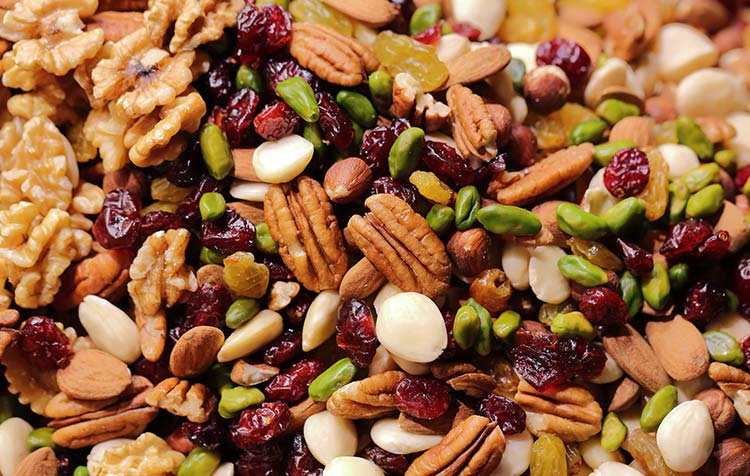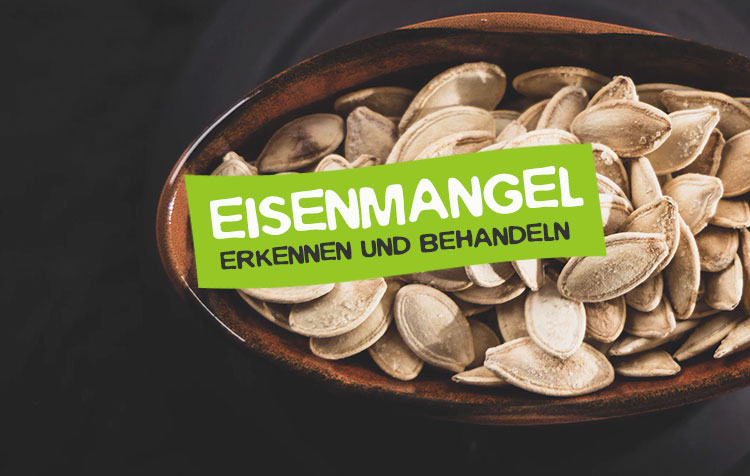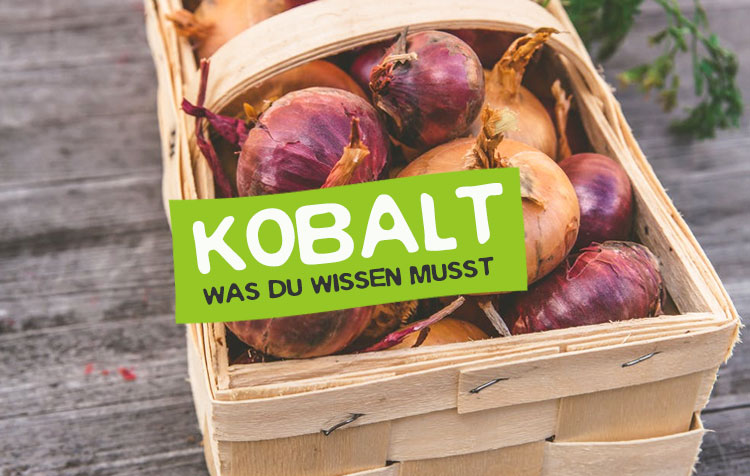You want to learn everything worth knowing about fats and fatty acids? Then this article is just right for you! On the one hand, fats are a beloved and later hated part of a high-calorie diet - but on the other hand, they are also an important flavor carrier and energy supplier.
In this article I would like to give you the most important information about good and bad fats. We will start with the basic information, followed by the daily requirement, physiological importance of fats, as well as the best sources of fat and what vegans and vegetarians should look for in their fat supply.
Here is in advance a short Table of contents for you:
Notice: This article is not a substitute for medical advice, but merely provides general information about fats. Please consult your doctor if you feel unwell or want to prevent health problems with medical care.
Steckbrief auf einen Blick
Assignment: Macronutrients
Synonyms: Lipids
Important for: Energy supplier, cell membrane, hormone production, absorption of fat-soluble vitamins
Daily requirement: 30-35 percent of caloric intake, from the age of 15.1,2
Overdose: approx. 35 percent of the calorie intake1,2
Deficiency symptoms: among others, vitamin deficiency and consequently disorders of skin, hair, growth, fertility, etc.
Food: cold pressed vegetable oils, nuts and nut mushrooms
Nutritional supplement: Omega-3 capsules or omega-3 oils
Basics about fats
Fat respectively Lipids are unfortunately still far too often described as harmful or fattening. Yet they have many important and vital functions in the body. It is therefore also so important, High quality greases in the diet and reduce low-quality fats. But which fats are beneficial to health and which are not?3
A distinction is made between saturated and unsaturated fats. Whether it is saturated or unsaturated is related to the respective number of double bonds.
Saturated lipids, such as palm oil or many animal fats, do not have a double bond and have a negative effect on blood lipid levels. Monounsaturated fats, for example olive or rapeseed oil, have a double bond and tend to be beneficial to health. Polyunsaturated lipids contain more than one double bond and are considered essential, meaning they must be consumed through the diet. Examples are Omega-3 and omega-6 fatty acids.
Notice: Since unsaturated fatty acids oxidize more easily, you should use them up more quickly or buy them in smaller containers.
Furthermore, there are long-chain, medium-chain and short-chain fatty acids, as well as saturated and mono- or polyunsaturated fatty acids and also trans fatty acids. It is quite difficult to see through all this. Whether a fatty acid is short-, medium- or long-chain depends on its number of carbon atoms.
Due to the small number of carbon atoms apply short-chain fatty acids like butter as easily digestible. Medium-chain fatty acids, for example coconut fat, are also easily digestible and are considered a good energy supplier. The long-chain fatty acids have at least twelve carbon atoms and the digestion process takes much longer than for the short- and medium-chain fatty acids.
The long chain fats are quickly stored in fat depots if you take in more of them than you need. That's why it makes sense to take in as much as you need. Which brings us to the next question: how much fat do we actually need?
How much fat is useful?
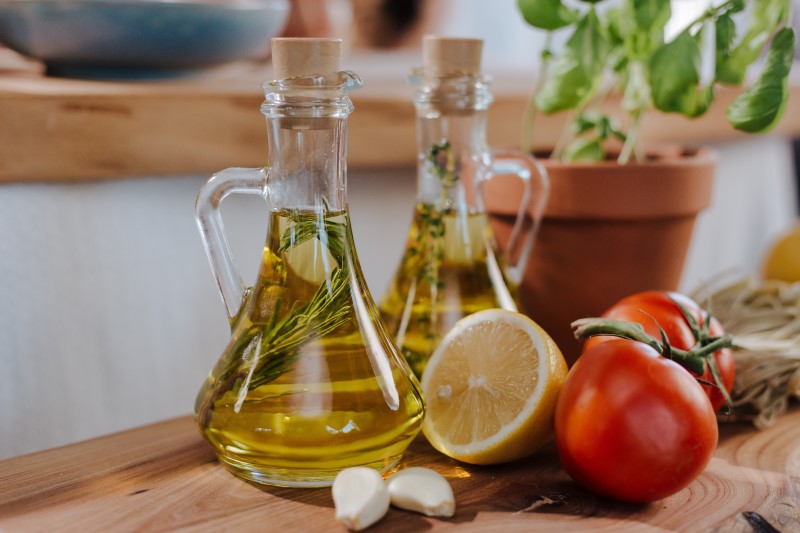
Let's start with the minimum recommendation. The Food and Agriculture Organization of the United Nations (FAO) recommends an intake of At least 15 percent of the calorie intake. With an intake of 1,800 calories, that would be 270 calories derived from lipids, or about 29 grams of fat.4
The European Food Safety Authority (EFSA) recommends a minimum intake of 20 percent of caloric intake and a maximum intake of 35 percent of caloric intake.2 In grams, this means a minimum of 39 g and a maximum of 68 g of fat for a daily intake of 1,800 calories.
And the German Society for Nutrition (DGE) recommends that from the age of 15, 30 percent of calories should be supplied by lipids. For Children between 1 and 14 years, the recommendation is 30-35 percent. Likewise for pregnant and breastfeeding women.1:
Wofür der Körper Fette benötigt?
Fats are great Energy suppliers. Per gram of fat they contain 9.3 calories. Especially with an increased calorie requirement, fats are a good source to meet the demand. Furthermore, they are essential for the Uptake of the fat soluble Vitamins A, D, E and K responsible. Lipids are also used for the Production of bile acid and hormones needed. Another and already mentioned function of fats is that they are Flavor carrier and thus ensure that our meals taste good in the first place. As fat depots, lipids have other functions, namely thermal insulation and also the function as a pressure cushion.
The elementary Functions of lipids:
- Energy supplier
- Absorption of fat-soluble vitamins
- Substrate for the formation of bile acid and hormones
- Flavor carrier
- Thermal insulation
- Pressure pad
Notice: I have focused here on the essential functions of lipids in general. Individual fatty acids such as Omega-3 fatty acids can have even more functions.
Is there such a thing as "too much" fat?
In principle, there is concrete toxicity of fats, but too high intake of fats affects various Disease patterns out. These include chronic diseases such as obesity, type 2 diabetes mellitus, dyslipoproteinemia, hypertension, metabolic syndrome, coronary heart disease, stroke, and cancer.3 That's why most nutrition societies recommend an intake of no more than 35 percent of dietary calories.
Furthermore, the inclusion of the harmful trans fatty acids be reduced. These include in particular lipids from dairy products and meat from ruminants, as well as fats in fast food and convenience foods.
Another factor in the selection of fats is the Ratio of omega-6 and omega-3 fatty acids. This is because omega-3 and omega-6 fatty acids require the same enzymes to be converted by the body into other forms.
Thus, if the intake of omega-6 is too high, the conversion of omega-3 is prevented.5 This should be a maximum of 5:1, i.e. you should take in a maximum of five times as much omega-6 as omega-3. With regard to this, linseed oil, rapeseed oil, coconut oil and hemp oil have a particularly good ratio and sunflower oil, safflower oil, soybean oil and grape seed oil have a poor ratio.6
Tip: How you Prevent heart disease in principle You can find out more about this in a separate article.
Can there be a shortage?
A fat deficiency is very unlikely in practice if sufficient calories are eaten. Symptoms of a fat deficiency are basically above all a vitamin deficiency and thus hair loss, skin disorders, infertility, weakening of the immune system and growth disorders.
People who are susceptible to fat deficiency are those who suffer from eating disorders such as anorexia and bulimia or who extremely restrict their fat intake.
So what are some good sources of fat?
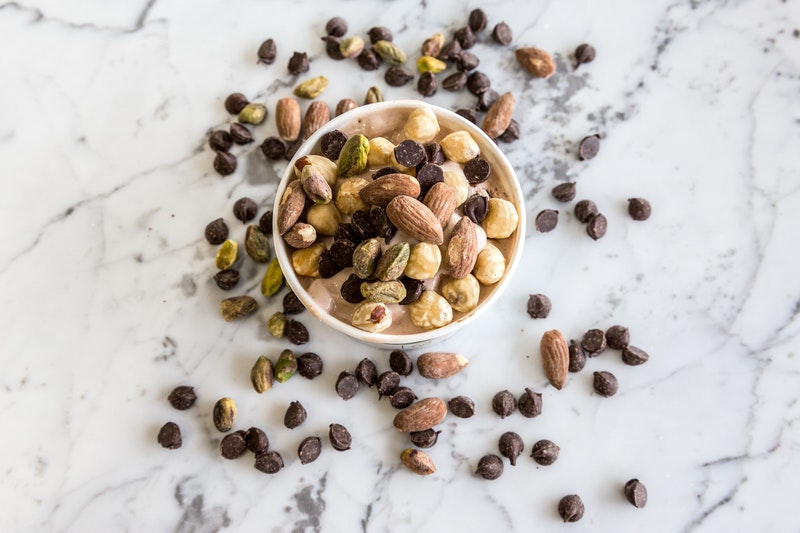
I don't choose my fat sources based on their fat content, but pay much more attention to what micronutrients they contain. Particularly good sources of fat are Nuts and seeds, because in addition to healthy fats, they contain many micronutrients such as Zinc, Calcium and Potassium included. Also Soy products, such as tofu or tempeh provide, in addition to a good fat content, other nutrients such as. Protein, Folic acid or Iron. These fat sources are supplemented by the selection of high-quality oils.
The following list contains particularly good sources of fat:
- Tahini
- Peanut butter
- Walnuts
- Cashews
- Sesame
- Flaxseed
- Olives
- Tempeh
- Extra virgin olive oil
- Coconut oil cold pressed virgin
Do vegans consume enough fats?
The vegan diet actually offers many advantages over a mixed-food or vegetarian diet in terms of fat supply. It is free from cholesterol and Contains far fewer saturated fatty acids. With nuts, nut mushrooms, seeds, soy products and vegetable oils, sufficient fat is also provided in a vegan diet. Consequently, fat has not been declared by the DGE as a potentially critical nutrient in a plant-based diet. However, the special long-chain omega-3 fatty acids EPA and DHA are critical and should therefore be supplemented.7
Is it possible to supplement fat?
Supplementing fat per se is obviously neither effective nor necessary. Especially in vegan diets, however, it makes sense to supplement the rare omega-3 fatty acids EPA and DHA. You can find more information about this in the separate article on omega 3.
Two very good omega-3 containing supplements in drop or capsule form that I can recommend:
- Drop from Vivo Life (600 mg DHA, 300 mg EPA per daily dose):
you get here* - Capsules from Mind Body Nutrition (500 mg DHA, 250 mg EPA per daily dose):
you get here*
Fat FAQ: The most frequently asked questions
Which fats are healthy?
Particularly recommended fatty acids are the medium and long-chain and monounsaturated, as well as polyunsaturated fatty acids. These include, for example, olive oil, coconut oil or linseed oil.
What is healthier saturated or unsaturated fatty acids?
The unsaturated fatty acids are considered to be beneficial to health and improve blood lipid levels, while the saturated fatty acids are more likely to be harmful to health.
What is meant by unsaturated fatty acids?
Unsaturated fatty acids have either one or more double bonds. Monounsaturated fatty acids are, for example, olive oil or rapeseed oil. Polyunsaturated fatty acids are omega-3 and omega-6 fatty acids.
What are good sources of fat?
Good sources of fat include nuts, nut mushrooms and seeds, as well as high-quality, cold-pressed vegetable oils.
Where does the name fat come from?
The name fat comes from the word vet (Middle Low German) and feist (Upper Middle German), which means ester of glycerol and fatty acids.
Choose the right fats!
So it's all about choosing high-quality fat sources rather than obsessively reducing fats. If you include nuts, nut nuts and seeds, as well as high-quality, cold-pressed vegetable oils in your diet, you will be well supplied with lipids.
Good fat care is just one part of holistic health. If you are looking for holistic health interested, then take a look at the contributions to the Cold showers, Nature and fresh air or Meditation in. If you want to know more about fats and I left a question unanswered, feel free to leave me a comment here!
All the best,

P.S.: Our Nutrient database includes contributions to many other nutrients, such as Selenium, Vitamin C or Magnesium . Should you just change your diet and eat vegan, then the article is "Living Vegan" certainly also interesting for you. Have fun!
References:
1 German Nutrition Society: Fat, https://www.dge.de/wissenschaft/referenzwerte/fett/?L=0 [05.11.2021].
2 European Food Safety Authority: Scientific Opinion on Dietary reference values for fats, including saturated fatty acids, polyunsaturated fatty acids, monounsaturated fatty acids, trans fatty acids and cholesterol,https://efsa.onlinelibrary.wiley.com/doi/pdf/10.2903/j.efsa.2010.1461. [05.11.2021]
3 German Nutrition Society: DGE recommends: pay attention to fat quantity and quality. Fat intake plays a role in disease prevention, https://www.dge.de/presse/pm/dge-empfiehlt-auf-fettmenge-und-qualitaet-achten/ [05.11.2021]
4 Food and Agriculture Organization of the United Nations (2010): Fats and fatty acids in human nutrition: report of an expert consultation: 10-14 November 2008, Geneva, https://www.fao.org/3/i1953e/i1953e.pdf, [05.11.2021].
5 Center of health: which fat for which purpose, https://www.zentrum-der-gesundheit.de/ernaehrung/lebensmittel/fette-oele-essig/welches-fett-fuer-welchen-zweck [05.11.2021]
6 Zentrum der Gesundheit: Omega 3: The effects of these fatty acids, https://www.zentrum-der-gesundheit.de/ernaehrung/nahrungsergaenzung/omega-3-uebersicht/omega-3 [05.11.2021]
7 Deutsche Gesellschaft für Ernährung e. V.: Supplement to the position of the German Nutrition Society with regard to population groups with special nutritional needs, https://www.dge.de/wissenschaft/weitere-publikationen/dge-position/vegane-ernaehrung/?L=0 [05.11.2021].

